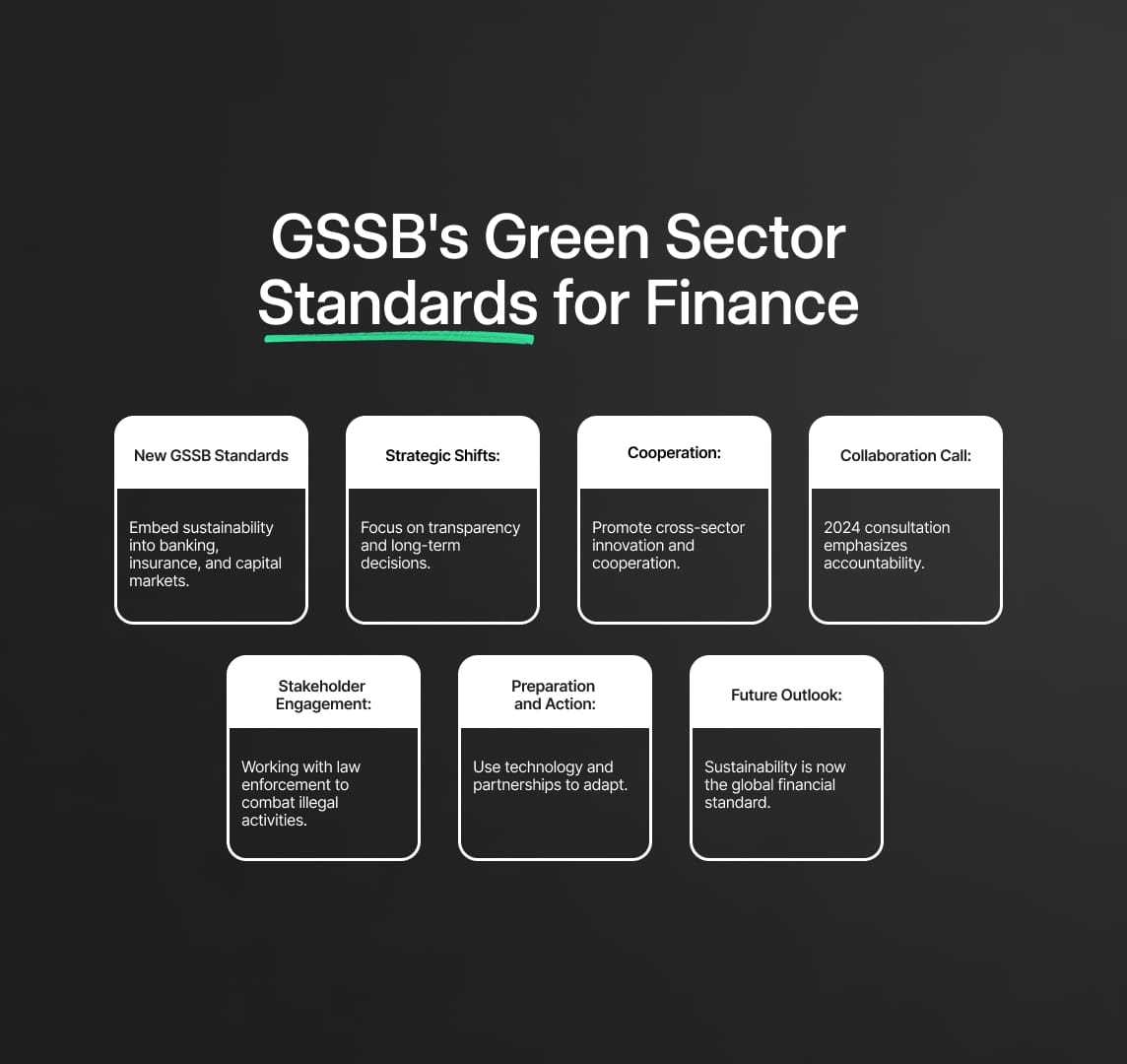Financial Sector Transparency: New GSSB Standards
Amidst global sustainability shifts, the GSSB's new Sector Standards for banking, insurance, and capital markets promise a financial transformation. By enhancing transparency and promoting sustainable decision-making, these standards champion collaboration across sectors.

New GSSB Standards for Banking, Insurance, and Capital Markets
The Global Sustainability Standards Board (GSSB) has approved the creation of three new Sector Standards that would increase transparency in the banking, insurance, and capital markets sectors. This is a revolutionary step. This choice is based on the shared services that these industries provide, including funding allocation for investments, risk management, and financial transaction facilitation. Through this program, enterprises can achieve more comprehensive and globally consistent reporting that meets the needs of stakeholders. It recognizes the various operations and regulatory frameworks that are specific to these industries, as well as the integration of major financial service providers throughout these industries.
By September, the 39-member designated Technical Committees are expected to start their discussions. Aside from sector-specific issues pertaining to sustainable development, material subjects, alignment tools, and the associated impacts and disclosures, they will offer industry-specific guidance for the establishment of their particular standards. In 2024, the public is anticipated to be able to comment on the draft standards.

Steering Global Finance Towards a Greener Tomorrow: GSSB's New Sector Standards
In a time when sustainability is a global necessity rather than just a trendy term, the financial industry is at a pivotal point in history. Recently, the Global Sustainability Standards Board (GSSB) has stepped up to the plate and approved the creation of innovative Sector Standards for financial markets, insurance, and banking. This big step threatens to completely change the financial landscape because of the interconnected services these industries offer, which range from clever risk management and sustainable capital allocation to simplifying financial operations.
Fundamentally, the introduction of the GSSB's standards is intended to achieve a number of different goals. In addition to fostering stakeholder trust by promoting transparency and comparability across these crucial areas, it offers a roadmap for better informed and long-term decision-making. With this fresh emphasis, sustainability is guaranteed to become a key component of basic corporate strategies rather than being ignored.
These norms have a great deal of weight and significance. To begin with, the banking industry is about to undergo a reporting revolution that will prioritize sustainable growth metrics and a more sophisticated approach to capital investments. In the meantime, the insurance industry is preparing to integrate strong disclosure procedures and sustainability into its core risk management strategies. What about capital markets? They are in a position to align their products with international sustainable development goals, paving the way for hitherto unheard-of levels of openness.
However, the financial sectors are not traveling alone on this trip. The collaborative culture is supported by the cross-sectoral DNA of the GSSB's standards. It's a clear call to action for the financial industry to collaborate, share expertise, and creatively address the problems associated with sustainable finance—perhaps even launching a new era of environmentally conscious financial goods and services.
It is impossible to overestimate the importance of stakeholder participation. In addition to demonstrating the GSSB's dedication to strong and adaptable standards, the next public consultation process in 2024 also highlights the significance of responsibility in this new financial era.
In order to prosper in this redesigned ecosystem, strategic alignment and proactive mitigation are essential. Financial institutions need to equip themselves with cutting-edge technologies and procedures, regardless of their industry. Whether it is utilizing technology to gather essential sustainability data or cultivating alliances with sustainability experts, the way forward is evident: adjust, cooperate, and create.
The countdown has started, with Technical Committees ready to begin their extensive discussions in September and public consultation approaching in 2024. Financial institutions need to get ready since these standards are a collective step towards a more sustainable and environmentally friendly financial future, not merely a means of complying with regulations.
Such dynamic standards demonstrate an institution's agility and resilience while also reaffirming its commitment to the environment. The overall message is clear as we approach this revolutionary era: sustainability is now the benchmark for global finance and is not an alternative.
Read More
Reduce your
compliance risks


